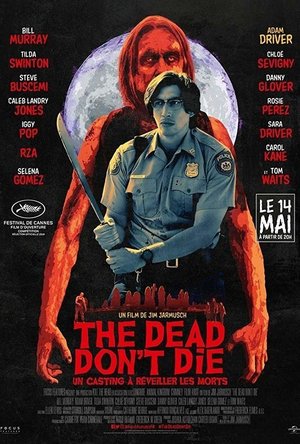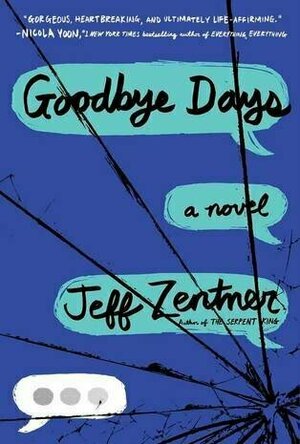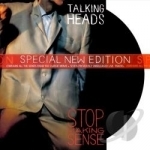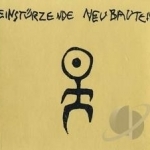Search
IT
Is That All There is?: The Strange Life of Peggy Lee
Book
"She made you think that she knew who you were, that she was singing only to you..." Miss Peggy Lee...
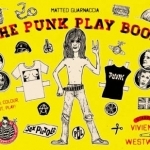
Punk Play Book: Starring Vivienne Westwood
Book
This play book is being published four decades after the birth of punk, and it is devoted to one of...
LeftSideCut (3776 KP) rated The Dead Don't Die (2019) in Movies
Jan 7, 2020 (Updated Jan 29, 2020)
Several Wild Animals
The Dead Don't Die is truly a bizarre experience.
Jim Jarmusch has crafted a gratuitously deadpan and self aware zombie film that tackles tired genre tropes in unique and confusing ways.
Truth be told, I was ready to hate it. I knew that it wasn't the same style of zombie-comedy as Zombieland, or Shaun of the Dead, and I expected to be bogged down in pretentiousness - I'm happy to admit that I was wrong in this case.
A lot of the complaints I've seen about TDDD is precisely that. That, and the fourth wall breaking, but those are two aspects that I actually really liked.
The humour is really subtle for the most part. The dead pan delivery of a lot of the script was quite jarring at first, but it didn't take long for it settle, and I actually ended up finding it pretty funny, just not in-your-face funny (which is a good thing).
The fourth wall stuff verges on being too-clever-for-its-own-good but it just about pulls it off, and gives an interesting alternate thought process to the general narrative.
The cast is brimming with people that I like and love - Bill Murray, Adam Driver (surely a full blown man crush by this point), Chloë Sevigny, Steve Buscemi, Danny Glover, Tilda Swinton... God damn I even love Iggy Pop. It's a great cast list for sure, and the charming and witty script gives them all a lot to do, even if some of the many characters feel under developed at times.
The zombie aspect is a bit if a back seat for me. I was certainly more invested in the aforementioned cast, than any actual zombie action, but I enjoyed the 'classic' shuffling zombies in a small town setting for what it's worth.
I'm not sure what I expected from The Dead Don't Die, but it certainly wasn't what I got, and that precisely why it stands out.
Jim Jarmusch has crafted a gratuitously deadpan and self aware zombie film that tackles tired genre tropes in unique and confusing ways.
Truth be told, I was ready to hate it. I knew that it wasn't the same style of zombie-comedy as Zombieland, or Shaun of the Dead, and I expected to be bogged down in pretentiousness - I'm happy to admit that I was wrong in this case.
A lot of the complaints I've seen about TDDD is precisely that. That, and the fourth wall breaking, but those are two aspects that I actually really liked.
The humour is really subtle for the most part. The dead pan delivery of a lot of the script was quite jarring at first, but it didn't take long for it settle, and I actually ended up finding it pretty funny, just not in-your-face funny (which is a good thing).
The fourth wall stuff verges on being too-clever-for-its-own-good but it just about pulls it off, and gives an interesting alternate thought process to the general narrative.
The cast is brimming with people that I like and love - Bill Murray, Adam Driver (surely a full blown man crush by this point), Chloë Sevigny, Steve Buscemi, Danny Glover, Tilda Swinton... God damn I even love Iggy Pop. It's a great cast list for sure, and the charming and witty script gives them all a lot to do, even if some of the many characters feel under developed at times.
The zombie aspect is a bit if a back seat for me. I was certainly more invested in the aforementioned cast, than any actual zombie action, but I enjoyed the 'classic' shuffling zombies in a small town setting for what it's worth.
I'm not sure what I expected from The Dead Don't Die, but it certainly wasn't what I got, and that precisely why it stands out.
Katie Guinn (34 KP) rated Goodbye Days in Books
Dec 7, 2018
Where do I start with this book? I read Jeff Zentner’s debut novel, The Serpent King, last year and I absolutely loved it, I’m talking one of my favorite reads of the year. And after finishing his follow-up novel, it’s safe to say that he’s becoming an auto-read author for me. The story opens with Carver Briggs (named after Raymond Carver and nicknamed Blade, how cool is that?) attending the funerals of his three best friends who were killed in an auto accident while texting Carver. As you can imagine, Carver is constantly plagued by guilt, grief, and the threat of possible prosecution. Every time I picked up this book, I immediately had a lump in my throat, the emotion was so real and so raw. Throughout the course of the book, Carver has “goodbye days” with each of his friends’ families, sharing memories and trying to make peace with his loss. They were the hardest parts to read, but also the most beautiful, where you could really feel Carver’s love for his friends and the depth of his grief.
One of my favorite things about Jeff Zentner is how he writes his characters. Carver and his friends, The Sauce Crew, feel like real teenage boys, sometimes cringingly so. Zentner writes misfits and outcasts as only someone who has been there can; honestly and compassionately. His prose sometimes feels almost poetical, lyrical; which makes sense. He’s also a guitarist and songwriter with five albums under his belt, who’s recorded with Iggy Pop and Debbie Harry. His love for music is a common thread in his books, both of which feature musicians and the power of music to heal and inspire. (The music-related Serpent King cameo was possibly my favorite thing in this novel)
While I didn’t love this one quite as much as The Serpent King, it was still a five star read for me and I recommend it if you’re a YA contemporary fan or if you just enjoy having your heart ripped out of your chest and shredded into confetti multiple times.
One of my favorite things about Jeff Zentner is how he writes his characters. Carver and his friends, The Sauce Crew, feel like real teenage boys, sometimes cringingly so. Zentner writes misfits and outcasts as only someone who has been there can; honestly and compassionately. His prose sometimes feels almost poetical, lyrical; which makes sense. He’s also a guitarist and songwriter with five albums under his belt, who’s recorded with Iggy Pop and Debbie Harry. His love for music is a common thread in his books, both of which feature musicians and the power of music to heal and inspire. (The music-related Serpent King cameo was possibly my favorite thing in this novel)
While I didn’t love this one quite as much as The Serpent King, it was still a five star read for me and I recommend it if you’re a YA contemporary fan or if you just enjoy having your heart ripped out of your chest and shredded into confetti multiple times.
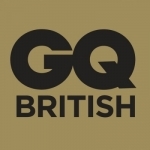
GQ Magazine (UK)
Lifestyle and Magazines & Newspapers
App
Download the October edition of GQ, with exclusive iPad content. All the winners at the 20th annual...

